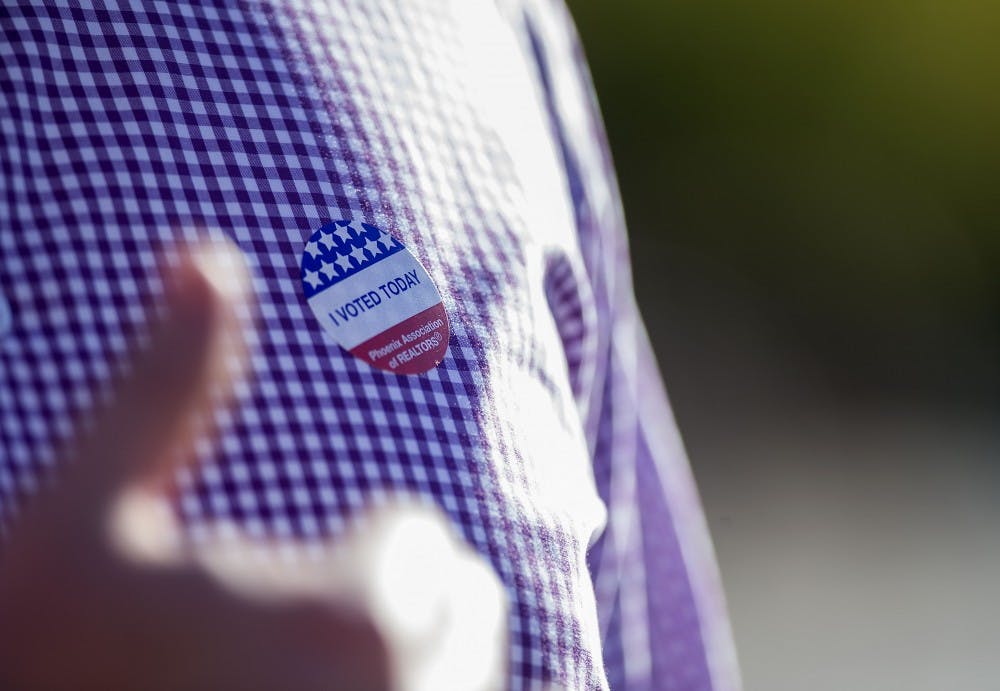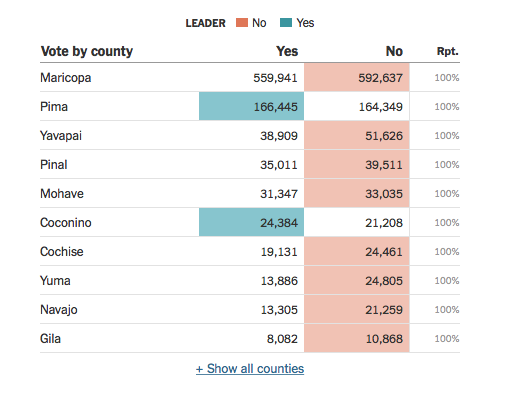Every presidential election cycle, student voters tend to forget the importance of what is listed below the top of the ballot, which includes local propositions that will affect their daily lives. This time, voters saw propositions to legalize recreational marijuana and increase the minimum wage on the ballot.
Prop. 206, which proposed raising the minimum wage over the next several years, passed. However, Prop. 205, which was focused on legalizing marijuana in the state, did not.
With Prop. 206, students who work in Arizona will soon make more money per hour at their jobs. This increased wage will begin in January.
According to the proposition, Arizonans who work for a minimum wage will see their earnings per hour raise from $8.05 to $10 in January. By 2020, minimum wage earners will make $12 per hour.
Janett Salas, a business management graduate student, voted in support of this proposition on Election Day, Nov. 8.
"I was happy I did vote for it," she said. "Cost of living will always go up, so it's logical to raise the wage to match up to it."
However, Salas said it will take a while for citizens to understand how beneficial this will be for young workers.
"In the overall picture, once everything starts setting in, they will all see that this was the right thing to do," she said.
Some students are concerned that raising the minimum wage will drive prices up.
One of those students is Dominic Clark, a business communication sophomore, who believes this outcome will affect the pricing of retail items as businesses raise costs to match the increased incomes.
"If our wage rises, I think we will see the price of most items rise to the point where a single Snickers would cost $5," he said.
The second proposition on the ballot was regarding the legalization of marijuana.
However, this proposition was rejected. Of all 15 counties in Arizona, only two approved the proposition. Maricopa county, where ASU is located, was one of the 13 other counties to reject the proposition.
Malik Coleman, communications freshman, said he is not pleased with this decision. He believes this rejection had to do with money and traditional people.
"It's the Republican opinion," he said. "Although smoking is not healthy, now that we have a Republican president, it's going to be hard for this to pass."
Often, Arizona's conservative background is the first thing that comes to mind to young people when finding out this proposition didn't pass.
Ellen Ramirez, a communications sophomore, said she blames conservatives and pharmaceutical companies for this outcome.
"I think it didn't pass because of the amount of conservatives Arizona has, and pharmaceutical companies know marijuana can control sick people, which will affect pharmaceutical companies and their business," she said.
However, other students chose not to support the proposition because they believe regulating marijuana like alcohol, as the proposition suggested, was not good enough.
Tyler Cox, computer science sophomore, said Prop. 205 was not presented well enough for voters to be convinced of its approval.
"From my experience, people did not agree with the way it was written, even the people that were for (recreational marijuana legalization)," he said. "Once it is written in a way where people (are) more for it, there won't be a problem passing it."
Reach the reporter at gmijares@asu.edu or follow @thewillmijares on Twitter.
Like The State Press on Facebook and follow @statepress on Twitter.





